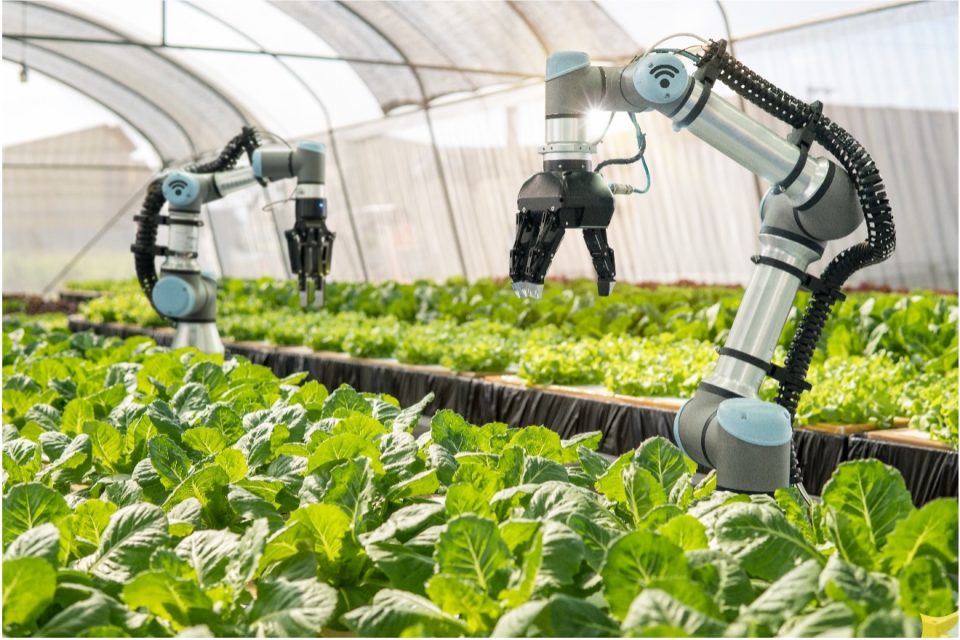
As we confront the pressing challenges of a changing climate, agriculture remains one of the most vulnerable sectors. With increasingly unpredictable weather patterns, prolonged droughts, erratic rainfall, and growing water scarcity, farmers worldwide are grappling with the daunting task of securing food production and livelihoods. However, amidst these challenges, a ray of hope emerges through the application of Artificial Intelligence (AI) in agriculture. This transformative technology is reshaping the agricultural landscape, offering innovative solutions to develop drought-resistant crops and enhance irrigation systems. In this article, we will delve into the transformative potential of AI in safeguarding our agricultural future.

Drought-Resistant Crops: Revolutionizing Agriculture Through AI
Drought-resistant crops hold the key to ensuring food security in a changing climate. AI, with its data processing capabilities, accelerates traditional crop breeding methods, making them more precise and efficient. Here are some ways AI is revolutionizing crop development:
- Precision Breeding: Traditional crop breeding is a time-consuming process. It can take years to develop and release a new variety. AI expedites this process by analyzing vast datasets of genetic information. It identifies genes associated with drought resistance and helps breeders design crops with enhanced resilience to water stress. These AI-assisted breeding programs significantly shorten the development timeline for drought-resistant crop varieties.
- Phenotyping: AI-driven drones and ground sensors are deployed in fields to monitor crop health continuously. These sensors capture data on plant growth, stress levels, and soil conditions. AI processes this real-time information to identify the most promising drought-resistant varieties, enabling breeders to make data-driven decisions.
- Crop Modeling: AI-powered predictive models simulate crop responses to varying environmental conditions, including drought scenarios. By analyzing historical climate data and crop performance, these models provide valuable insights. Farmers can use this information to make informed decisions on planting times and crop varieties, optimizing yields even in drought-prone regions.
- Genome Editing: CRISPR-Cas9, a revolutionary genome-editing tool, benefits from AI-driven algorithms that predict the impact of genetic modifications. Researchers can use AI to predict how changes in a plant's genetic code will affect its drought resistance. This precision editing allows for the development of highly customized drought-resistant crops.

Smart Irrigation Systems: Conserving Water through AI
Optimizing irrigation practices is another critical aspect of mitigating the effects of drought. AI plays a pivotal role in making irrigation systems smarter and more efficient:
- Data-Driven Decisions: AI analyzes an array of data sources, including weather forecasts, soil moisture levels, and crop water needs. It then adjusts irrigation schedules accordingly. By avoiding over-irrigation and ensuring plants receive the right amount of water at the right time, AI significantly reduces water wastage and energy consumption.
- Sensors and IoT Integration: The Internet of Things (IoT) and AI complement each other perfectly in agriculture. Smart sensors, embedded in fields or connected to irrigation systems, collect real-time data on soil moisture. IoT technology links these sensors to AI algorithms, enabling the automation of irrigation systems. These systems adapt to changing conditions in real time, ensuring optimal water use.
- Remote Monitoring and Control: AI-driven mobile applications empower farmers to remotely monitor and control their irrigation systems. Through these applications, farmers can fine-tune irrigation schedules, address issues promptly, and make data-driven decisions regarding water usage. This level of control not only saves valuable resources but also improves overall crop health.
AI in Action: Real-World Examples
Several AI-driven initiatives are already making a significant impact on agriculture:
- IBM AgroPad: Developed by IBM Research, the AgroPad is a handheld device equipped with AI and machine learning capabilities. Farmers can use it to analyze soil health and receive instant recommendations. This democratizes access to expert agricultural advice, particularly for smallholder farmers.
- Plantix: Plantix is an AI-driven mobile app that empowers farmers to identify crop diseases, pests, and nutrient deficiencies. By analyzing photos of affected crops, the app provides tailored solutions for crop protection. This technology helps reduce crop losses, enhance yields, and promote sustainable farming practices.
The Road Ahead: Embracing AI for Sustainable Agriculture
As AI continues to evolve, its role in agriculture becomes increasingly pivotal. While AI holds immense promise, it is not without its challenges. Data privacy, accessibility, and ethical considerations must be addressed as AI becomes more deeply integrated into agricultural practices.
Nonetheless, with responsible deployment and investment in AI-driven agricultural solutions, we can mitigate the impacts of climate change on our food systems. By developing drought-resistant crops and optimizing irrigation systems through AI, we are not only ensuring higher yields but also promoting sustainable water usage—a critical step toward a more resilient and food-secure future for all.

